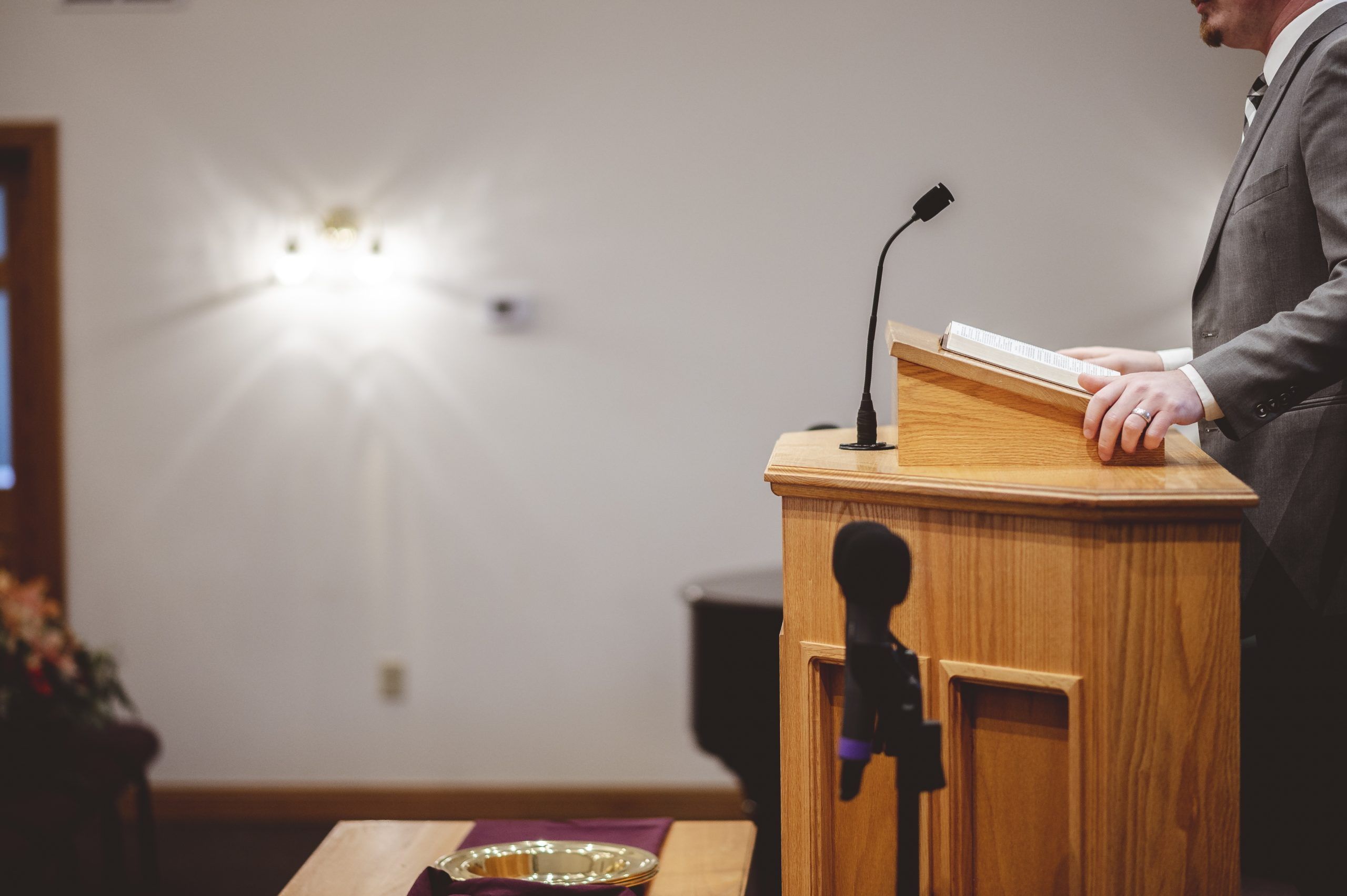Leveling Up Leadership
Pastors are leaders, not a groundbreaking statement, but what kind of leaders are they?
Very often, leadership is considered a binary issue. Either you are or you aren’t. You have the gift, or you don’t. You’re leading a crowd or taking a walk by yourself.
But what if leadership had levels?
That would help you know where to place people with the “gift “of leadership in your church. And it helps discern where you are as you face the challenges of leadership daily.
This concept surfaces in Exodus 18 when Moses gets schooled by his father-in-law (that’s never a fun experience). Jethro tells Moses that what he’s doing is not good because he’s bearing all the weight himself. He tells him he must find leaders but then gets strategic about it:
Exodus 18:21 (ESV): Moreover, look for able men from all the people, men who fear God, who are trustworthy and hate a bribe, and place such men over the people as chiefs of thousands, of hundreds, of fifties, and of tens.
Moses was to look for a bunch of leaders, all with similar integrity and skills, yet some were capable of leading thousands, while others needed to be simply over a handful.
Apparently, there are levels of leadership.
In my 30 years serving the church, I have seen four levels of leaders, both volunteer and staff.
Here’s a look at that list of four leadership types garnered from my observation over the years:
- Earn a check
- Serve a cause
- Lead a cause
- Advance a cause
Starting at the lowest level, or the lowest level of commitment, are leaders who are there to “earn a check.” You might think that’s only a staff designation. But, some volunteers lead in your church simply because they’re hanging onto a family heritage, feel a sense of burdened obligation, or even think they are somehow earning their spot in the Kingdom (legalism in its truest form).
And, if you’re blessed enough to have secondary staff members, some are skilled and able, but the only reason they are serving is because they need a job.
When someone volunteers, serves or leads to receive something in return, like payment of some kind, we must ask the question: should they be allowed to be in that place of leadership?
The answer is yes, and no. For the staff member, there is a higher sense of accountability and a need for them to be more than a hireling. There need to be some serious conversations about commitment to the church and the vision, positive conversations that challenge them to embrace leadership at a different level.
It could be extending their leadership to a place where they feel ownership. But, in the end, if a paid staff member can’t find motivation beyond a paycheck, they need not receive that paycheck.
Being a volunteer is a different matter. Suppose you recognize the volunteer is serving for some payout. In that case, this is an opportunity for discipleship driving them to prayer, seeing the value of what they do from the Kingdom perspective and celebrating with them. They may need to move roles or be challenged with different tasks and levels. As a pastor, you should embrace the opportunity to turn them into something more than they are today through God’s Spirit and service as a co-laborer.
What you don’t want to do is let them continue to serve with that heart, especially in leadership, knowing that all they are doing is “plugging a hole.” That is abusing the volunteer who should be discipled better.
The second level of leadership is one who “serves a cause.” These are the leaders that understand the mission and want to contribute. Their service is on task and beneficial to the organization/church. But, their leadership is primarily custodial. They are seldom self-starters and paint by numbers. They will be a faithful leader as long as they are instructed and inspired well. These leaders are managers and not alpha dogs.
It can be challenging for the staff member at this level because leaders above them often project their own personality and drive on those who serve with them. When they don’t see the same characteristics in that staff member that they see in themselves, it can often cause conflict and disappointment.
This is true for the secondary staff member as well as they believe they are serving at full capacity and don’t know why “the boss” is not satisfied. If this is the scenario you’re in, one of two choices must be made:
1) You can adjust your expectations to be satisfied with what they have to offer.
2) Or, you can help them to be a better leader, finding joy in seeing them grow.
For the volunteer at this level, you must ensure they are in the right seat on the bus. A leader who serves the cause is an incredible asset if you need someone to fulfill a role who will passionately reproduce what you need to be done in a specific area. But, if you have them in a position that needs to run independently without instruction, you could set yourself up for heartache.
Staff members and volunteers can grow from this level with some direct contact: intentional conversations on leadership, clear expectations, public rewards, reading together and processing as a team. The “serves a cause” leader is an asset where they are but has the potential for even more.
The third level I refer to as “leads a cause.” These are leaders that not only understand but they own the vision and the mission. They can articulate to others and convey passion. They can take the current church architecture and continue producing results with excellence.
You are a blessed pastor when you have one of these leaders on your staff! They are truly running arm and arm with you, and you probably feel a deep kinship with them as you work. If there is any drawback, they sometimes get a little out over their skis and occasionally swerve into your path as a leader.
But, it would help if you always appreciated those moments as a pastor, knowing that you’ve been given the gift of a strong leader, who you can help shape into a mature leader in the days in years ahead.
And if you have a volunteer that you can describe in these terms, they are often labeled a “high-capacity volunteer.” And that is a gift you should not miss giving thanks for in your prayers. Usually, the biggest drawback to high-capacity volunteers is that the world has recognized that skill in them, and they are often divided between your church, Boy Scouts, coaching, and 1000 other “good things.”
If the Lord leads, you might need to have that conversation with them, saying that they can continue serving all those good things, or if they are willing to clear their schedules, you would like to open the door up for them to bigger and better God things.
A good path for either staff or volunteer that can “lead a cause” is active apprenticing. Simply inviting them to a three-phase process to help them grow and to release them into more ministry is this:
- Come with me and watch what I do.
- Come with me and do what I do.
- I go with you and watch you do it.
This tried-and-true method will help develop even the best leaders into better, higher-capacity, Kingdom-shaking leaders.
The final category of leader will “advance a cause.” Not only does this leader understand and personify the church’s mission and vision where they are leading well in the current structure, they are busting at the seams to take everyone and everything to the next level.
These are the leaders you don’t have to inspire. In fact, you need to hold their reins sometimes. And let’s be honest, if you have a staff member or a volunteer in this category, just hit your knees and say thank you, Lord! But, there is a potential drawback.
Have you ever wondered where new pastors come from or where new ministries begin?
Well, they come out of the local church—churches just like yours.
I know the thought of losing the best and the brightest out of your congregation is not what you want, but if God raised them through you to go and do something else, He has a replacement for them right there in your midst!
When you recognize this kind of leader in your congregation, you have two responsibilities:
1) Open up new doors of ministry for them to stretch, grow, challenge, and take your church further down the road. Never be jealous of them in ministry; never worry that they will outgrow you. Actually, it would be best if you were hoping they would.
2) Let them go. When you recognize God is calling them out, you should lift them up before you send them away. If they obey God, it can do nothing but bless you!
I hope recognizing these different levels of leaders and how you might challenge and help them benefits you. Even more so, I hope you as a pastor are thriving as a “lead a cause” kind of leader because the pastor of every church needs to be ‘that’ guy.
But if the weight of leadership, the stress of bivocational life or a history of difficult work in the church has dropped you down a notch in your leadership practices, then take some time to draw yourself toward Him and practice some of these leadership pieces yourself.
Ask a more mature pastor to apprentice you. Start a reading group with leaders who will inspire you forward. Or, clear your schedule to make sure you have time for the God things and not just a bunch of good things.
Pastor, we are proud of you, thankful for you and want you to know what you’re doing is important and that you are not alone.










